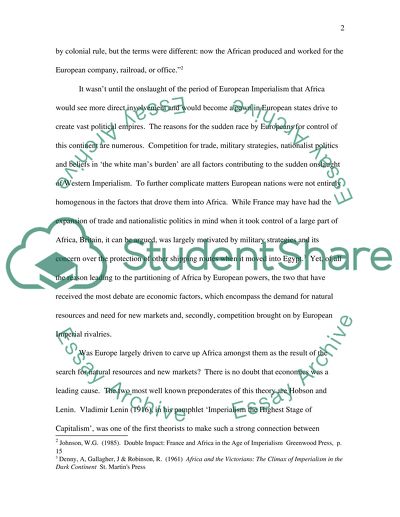Cite this document
(“European Imperialism in Africa Essay Example | Topics and Well Written Essays - 1500 words”, n.d.)
European Imperialism in Africa Essay Example | Topics and Well Written Essays - 1500 words. Retrieved from https://studentshare.org/history/1503095-european-imperialism-in-africa
European Imperialism in Africa Essay Example | Topics and Well Written Essays - 1500 words. Retrieved from https://studentshare.org/history/1503095-european-imperialism-in-africa
(European Imperialism in Africa Essay Example | Topics and Well Written Essays - 1500 Words)
European Imperialism in Africa Essay Example | Topics and Well Written Essays - 1500 Words. https://studentshare.org/history/1503095-european-imperialism-in-africa.
European Imperialism in Africa Essay Example | Topics and Well Written Essays - 1500 Words. https://studentshare.org/history/1503095-european-imperialism-in-africa.
“European Imperialism in Africa Essay Example | Topics and Well Written Essays - 1500 Words”, n.d. https://studentshare.org/history/1503095-european-imperialism-in-africa.


